- Home
- Parnell Hall
13 Suspense Page 2
13 Suspense Read online
Page 2
I had hedged on taking the assignment by saying I would have to consult my employer. Instead, I had wound up consulting my wife. This was for two reasons. One, the case in Harlem was not far from home. And, two, I knew what Richard’s opinion would be before I even asked him. Richard would want me to tell the woman to go to hell so I could continue to work for him.
I’m Richard’s top investigator. Don’t take that as bragging. What it means, basically, is I’m the only person with an I.Q, over a hundred willing to work for the wages Richard’s willing to pay. After long years of service, I had raised that figure to a whopping twenty bucks an hour. And then, only on the provision I didn’t tell any of his other detectives, who were still only making ten. I commanded the higher salary by virtue of occasionally getting the information right, and lasting more than a month. I’d hate to tell you how long it had taken me to figure this out.
“The job description is actually somewhat vague. Basically, I’m supposed to show up at her apartment tomorrow morning at nine o’clock prepared to work full-time until the matter is resolved.”
“Are those your words or hers?”
“That’s the gist of it.”
“Is that your gist or hers?”
“Hers. She wanted me to clear all cases so I’d be prepared to work full-time on this.”
“And from that you conclude she wants a bodyguard?”
“Well, it stands to reason.”
“Was the word bodyguard ever mentioned?”
“Oh. Well ...”
“Well what?”
“Actually, I told her I wasn’t a bodyguard, and she said she didn’t need one.”
“From which you concluded she did,” Alice said. “But of course. Women are such confused, fickle creatures, if they say they don’t want something it must mean they do.”
“Alice.”
“So, the bodyguard thing was entirely your idea.” She smiled. “That’s so cute.”
“Cute?”
“You saw yourself putting on fancy clothes. Taking her out to dinner. Escorting her out on the town. To all the fanciest places. Is that how you saw it? Kevin Costner and Whitney Houston?”
“Alice.”
“That’s adorable. What was it now? Oh, yes. Rule one: Never let her out of your sight.”
“Alice.”
Her eyes were bright. She looked at me impishly, “I-ah-I-ah-I will always love you-oo-ou-oo-ou.”
4.
AT LEAST RICHARD DIDN’T SING.
“A leave of absence?” he said. “You’re requesting a leave of absence?”
“Just for a while.”
“A leave of absence for an indefinite period of time. How nice.”
Richard got up from his desk and began to pace around the room. That was a bad sign. Richard Rosenberg was a little man who wore his opponents down through a seemingly inexhaustible source of nervous energy. He was hard enough to deal with sitting down. Standing, he was practically invincible. Allowed to hit his summing-up-for-the-jury stride, he could quickly reduce me to jelly.
“We have an agreement, Richard,” I quickly pointed out.
He wheeled on me, leveled his finger. “Exactly,” he said. ‘“That’s exactly true. We have an agreement. Our agreement is you work for me. If you don’t want to work for me, then you need to tell me why.”
“I have another job.”
“That’s less than helpful.”
“I have a higher-paying job.”
Richard’s eyebrows raised “Now you’re on my wavelength. What is this other job?”
I gave Richard a rundown of the situation, being careful not to use the word bodyguard.
“Interesting,” Richard said.
“So what do you think?”
“I think you have a plum of an assignment. How much did you say you were getting?”
“Five hundred bucks a day.”
“Just to find out who’s calling this woman?”
“That’s right.”
“How hard could it be?”
“I don’t know.”
Richard nodded judiciously. “At that rate, it would behoove you not to find him.”
“I beg your pardon?”
“This is the type of job that rewards failure. If she’s going to pay you five hundred bucks a day to find out who’s calling her, why find out who’s calling her? As long as you don’t you’re still employed.”
“That’s cynical, even for you.”
“Thank you,” Richard said. “And she’s married to Kenneth P. Winnington?”
“You’ve heard of him?”
“Who hasn’t.”
“Ever read one of his books?”
Richard made a face. “What, are you nuts. Why would I do that?”
“Well, he’s on the best-seller list.”
“Exactly,” Richard said. “I have some standards.”
“Oh? Such as?”
“I make a point of never reading any book I can buy in the airport.”
“Ever read John Grisham?”
“Of course not.”
“But he’s a lawyer.”
“So?”
“You’re a lawyer. Didn’t you ever get the urge to write a book?”
“Not at all. Why?”
“It just occurred to me you might read a John Grisham book and say, Hey, I can write better than that, and this guy’s on the best-setter list.”
“Never happen,” Richard said.
“Why? Because you can’t write?”
“Don’t be silly. I could write if I wanted to. But what’s the point?”
“The point? The point is the guy’s on the best-seller list.”
“So?”
“So he’s making a fortune.”
“By his standards, sure.”
“By his standards?”
“Exactly.” Richard looked at me. Smiled. “Stanley, if John Grisham had my law practice, he wouldn’t have to write.”
I grimaced. “Hey, good line, Richard. So, can you do without me for a few days? Or would you care to top the young lady’s offer?”
“Of five hundred bucks a day? I’d go broke signing up trip-and-falls at five hundred bucks a day.”
“That should make Mr. Grisham less envious.”
Richard ignored the barb, said, “So, let me know what happens. Though there will probably be no need.”
“What do you mean by that?”
He shrugged. “Well, it’s Kenneth P. Winnington, isn’t it? If anything comes of this, it will probably make the front page of the National Enquirer.”
5.
I MET THE GREAT MAN THE following morning at nine o’clock when his manned elevator delivered me directly into the living room of his floor-through Park Avenue apartment. If I had to describe that living room in two words, they would be spacious and ornate. That’s about as good as it gets from my point of view. What I know about interior decorating wouldn’t fill a one-page brochure. I can barely tell gothic from modern, and am not sure if those terms even apply. At any rate, here you were talking high ceilings, wood paneling, marble fireplaces, French windows (I think), and oil paintings that gave the impression of being originals, though whether they were or not, I could not have begun to guess.
In the middle of the room stood a powerful man, impeccably dressed in a three-piece pinstripe blue suit, a gold watch chain draped across the vest. His wavy brown hair, medium long, swept back from a high forehead. Sideburns, impeccably trimmed, showed just a touch of gray. Though obviously a few years older than my client, he was not nearly as old as I’d expected. At least not for a best-selling author. I had a quick, fleeting pang of envy—younger than me and so successful. I repressed the thought, smiled.
“Mr. Hastings?”
“Yes, sir,” I said. And immediately kicked myself for saying sir. There’s deferential and then there’s deferential. I extended my hand. “How do you do?”
“Fine, thank you,” he said, with just a trace of a smile. Then, “M
r. Winnington is in the study. This way, please.”
Feeling only slightly foolish, I followed whoever the hell it was who’d greeted me to a study twice the size of my living room that boasted a TV, a bar, and a pool table, just to name a few of its more obvious accoutrements.
It also boasted a massive oak desk, so large I couldn’t help wondering how it had gotten through the door. While it was slightly smaller than the pool table, pool tables come apart. I can’t recall the same being said of oak desks. At any rate, it was big and huge, looked like it weighed a couple of tons.
Seated at it was my second guess for best-selling author Kenneth P. Winnington. This man was closer to my age than that of my client. He was bald, with a fringe of gray hair, straight, medium long, hanging down over his ears. His gray beard was short and trimmed into what I guess is called a Vandyke—my knowledge of personal grooming only slightly exceeds that of interior design. A pair of half glasses hung from a cord around his neck.
He wore a faded, brown, plaid flannel shirt. When he stood up, I could see that it was not tucked in, and that he wore a pair of faded jeans. And when he came around the desk to shake my hand, I could see that he wore a pair of running shoes with the laces untied.
“How do you do?” he said. “I’m Kenneth Winnington.”
“Stanley Hastings,” I said, shaking hands.
“Yes. So Max said. She’ll be right down.”
“Down?”
“Yes. This is a duplex. The bedrooms are upstairs.”
“Oh, I see,” I said. And I did. A floor-through duplex. On Park Avenue. Five hundred a day was beginning to seem a little cheap.
“Now then,” he said. “About these phone calls.”
“Yes?”
“The main thing is put her mind at rest. It’s a terribly annoying thing, and it simply has to stop.”
“Who do you thinks behind it?”
“If I knew that, we wouldn’t need you.” He smiled. “But, obviously, some kind of kook.”
“You don’t think the threats are serious?”
“I hope to god they’re not. But much more likely this is just some kind of crank.”
I frowned.
“You disagree with that assessment?” he asked.
“Not at all. It’s just if this is some crank, he’ll be harder to stop.”
“Why do you say that?”
“If the threats are genuine, the creep is gonna act on them. When he does, he’s apt to expose himself and get caught. If it’s a crank making anonymous phone calls, he’s gonna be hard to find.”
“That’s why you’re here.”
“Uh-huh,” I said, “Can I assume the reason your wife hasn’t changed her phone number is because it’s your phone number too, and you need it for your work?”
“Don’t be silly,” he said. “I’ve changed the number. The calls still come.”
I frowned. “She didn’t tell me that.”
“You mean you didn’t ask?”
I bit my lip. The job had barely started, and I was making a hell of an impression.
“Actually, there were several matters we didn’t discuss. You see, there was some question of my taking the job.”
“Uh-huh,” he said. “Well, the fact is I have an unlisted number, I’ve changed it, and it does no good.”
“And you think the caller is some kind of kook?”
“Of course.”
“How would a kook get your new phone number?”
He frowned. “That’s the troubling part, and that’s where you come in.”
“Who has access to your phone number?”
“I can’t see how that’s relevant.”
“You can’t?”
“No. These threats are particularly odious. No one I know would make them.”
“And yet someone is.”
“Which is why I hired you.”
“Actually, I believe your wife hired me.”
He opened his mouth to say something, closed it again. Nodded. “Yes, yes, of course.”
“At any rate,” I said, “I’m going to have to track down how this creep got your phone number. I trust I can count on your cooperation.”
“Certainly. David will give you all the help you need.”
“David?”
“My secretary. David Pryne. The man who saw you in. He would have all that information.”
“Un-huh,” I said. “Should I speak to him now?”
“No, no. Max should be right down.”
We both looked toward the door, but Max was not forthcoming. That left me alone in the room with a famous author, who was not particularly forthcoming either.
I have to admit, celebrities make me nervous, I’m always afraid I’ll act like a total boob. That, coupled with the fact that I’d been hired to do a job I wasn’t sure I was capable of made me somewhat less than comfortable. I fidgeted, glanced around the room.
On the opposite wall were a row of what at first glance appeared to be pictures. It was a moment before I realized what they were.
“Are those your book covers?” I said.
“Those are the dust jackets, yes.”
I walked over, took a closer look. The covers, or dust jackets, as the author preferred to call them, had been framed so that both the front cover and the spine of the cover showed. As a result, the titles of each book appeared twice, once vertically and once horizontally. The titles formed Ls, due to the fact that the front cover titles were across the bottom rather than the top of the covers. On the top of each cover was the name Kenneth P. Winnington. As in the movies, the star had his name above the title.
I glanced at some of the titles. Die, Lady, Die. Till Death Do Us Part. Fatal Indiscretion. Woman on the Edge.
The predominant theme seemed to be women in danger. This was borne out by the cover art, which further defined the genre as Busty Women in Danger.
I turned back from the pictures to find my host looking at me, and realized a comment was in order, I almost said, “So these are your books?” but that seemed awfully dumb with the block letters Kenneth P. Winnington on each one. Instead, I said, “So you write mysteries?”
He winced slightly, managed a somewhat put-up on look. “No, actually I write suspense.”
“Oh?” I said. “What’s the difference?”
“Suspense sells.”
“Oh.”
“I’m sorry,” he said, with what I’m sure was intended as a disarming smile. “That was a bit smug. Actually, when you talk about a mystery, generally you’re speaking of a whodunit. You have a killer, the identity of whom is not known. And your police officer, private eye, amateur detective, or whatever, is attempting to unravel the mystery and solve the crime. Basically, find out who.
“Suspense is quite different. In suspense, the identity of the killer is often known, at least to the reader, if not to the protagonist. Because who the killer is isn’t particularly important. What’s important is who’s in danger. Will the killer get them, or will they get away? The greater the danger, the more the suspense. See what I mean?”
“Uh-huh,” I said. I groped for something to say, but not having read the man’s books, I was somewhat at a loss.
Fortunately, at that moment my client showed up. She came gliding into the room in a purple pantsuit of some clinging material or other that emphasized her figure and suggested that she had neglected to put on a bra. She was obviously just out of the shower—her hair was wet, which made it seem more brown than red.
She hurried in, saying, “Kenny, Kenny, please.” She kissed him on the cheek, turned to me. “You must forgive my husband. He’s done so many signings and seminars, when he gets into his lecture mode, you can’t get him out. Dear, Mr. Hastings isn’t a fan, he’s here about the phone calls.”
“Yes, of course. We were just killing time waiting for you.”
“Well, I’m here. Now, about the phone calls. I want you to listen carefully, see what you can tell from the voice.”
“Li
sten? You mean you have them recorded?”
“No, but that’s an idea.” She turned to her husband. “Honey, is there a way to make the answering machine record the calls? I mean, when you answer it yourself—can it record the call without the beep and the message and all that?”
“I don’t know.”
“What about it, Mr. Hastings? Could it do that?”
I really wanted to one-up the guy and have the answer, but frankly I didn’t know either. “That would depend on the machine,” I said. “We can make some experiments.”
“Well, maybe later,” she said. “Meanwhile, just see what you can get from the voice.”
I put up my hand. “I’m sorry. I’m not following this. What do you want me to listen to?”
“The phone call, of course.” She frowned. “Oh, he didn’t tell you? That’s why I wanted you here at nine o’clock. The phone calls come in at nine fifteen. At least some of them do. We’ve had some in the afternoon. But nine fifteen, that’s like a regular thing.”
I glanced at my watch. It was nine nineteen. Of course, my watch is always five minutes fast, which made it nine fourteen, and—
The phone rang.
My client and her husband exchanged glances, then she looked at me. “Listen carefully,” she said. “I’ll put it on the speaker phone.”
She crossed to the desk, pressed the button on the phone, said, “Hello.”
There came the general electronic background noise from the speaker.
Then a hoarse voice saying, “Eat shit and die.”
Then the click of the phone being hung up.
Then the dial tone.
My client pressed the button on the phone, shutting off the sound.
Then, as if on cue, she and her husband turned to me, expecting me to do something about it.
6.
“IS CALLER ID LEGAL?”
“Huh?”
“Caller ID—you happen to know if its legal?”
MacAullif leaned back in his desk chair, cocked his head and scowled. “What the hell are you talking about?”
Sergeant MacAullif was a homicide cop with whom I’d worked on numerous occasions, no doubt more numerous than he would have wished. I’d done him a favor once, and had been taking advantage of him ever since. Perhaps that’s putting it too harshly, but I’m sure that’s the way MacAullif would have put it. In fact, I seem to recollect him saying something of the kind at one time or another.

 Clicker Training
Clicker Training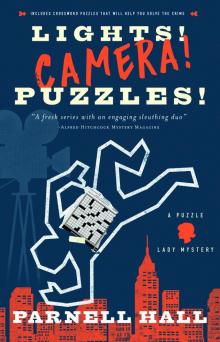 Lights! Camera! Puzzles!
Lights! Camera! Puzzles!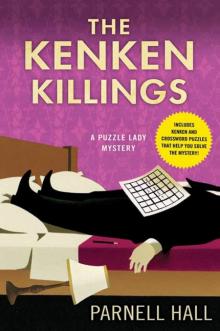 The KenKen Killings
The KenKen Killings 12-Scam
12-Scam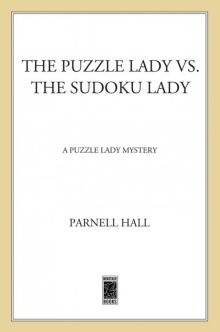 The Puzzle Lady vs. the Sudoku Lady
The Puzzle Lady vs. the Sudoku Lady 2 Murder
2 Murder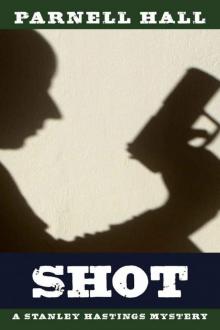 7 Shot
7 Shot You Have the Right to Remain Puzzled
You Have the Right to Remain Puzzled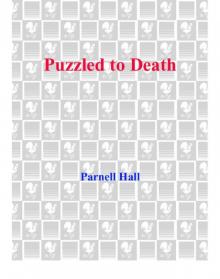 Puzzled to Death
Puzzled to Death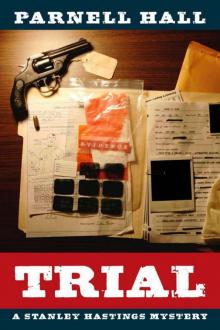 11-Trial
11-Trial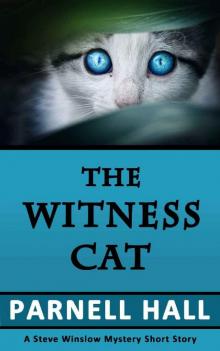 The Witness Cat (Steve Winslow Mystery)
The Witness Cat (Steve Winslow Mystery) With This Puzzle, I Thee Kill
With This Puzzle, I Thee Kill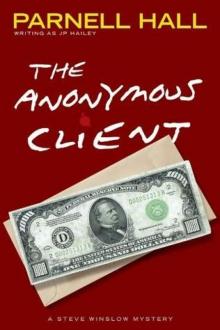 The Anonymous Client sw-2
The Anonymous Client sw-2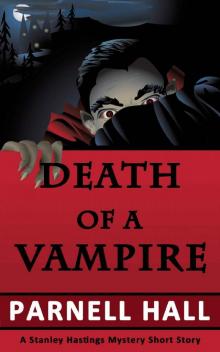 Death of a Vampire (Stanley Hastings Mystery, A Short Story)
Death of a Vampire (Stanley Hastings Mystery, A Short Story)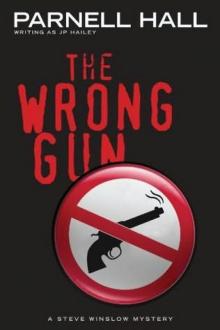 The Wrong Gun sw-5
The Wrong Gun sw-5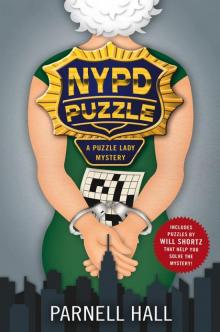 NYPD Puzzle
NYPD Puzzle 6 Juror
6 Juror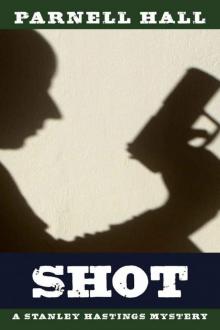 07-Shot
07-Shot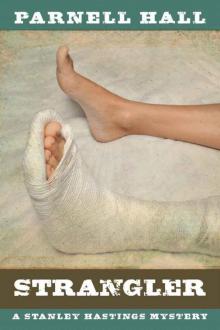 04-Strangler
04-Strangler 02-Murder
02-Murder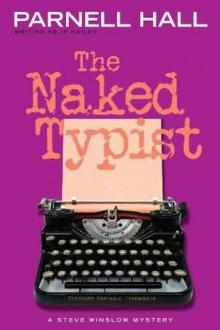 SW04 - The Naked Typist
SW04 - The Naked Typist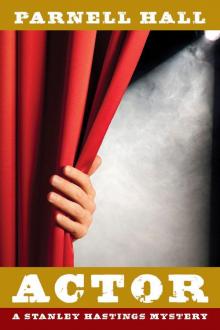 Actor
Actor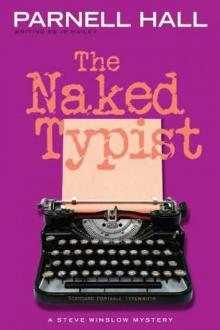 The Naked Typist sw-4
The Naked Typist sw-4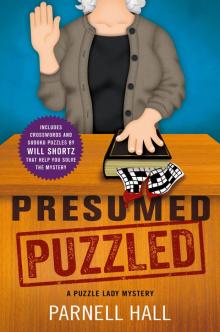 Presumed Puzzled
Presumed Puzzled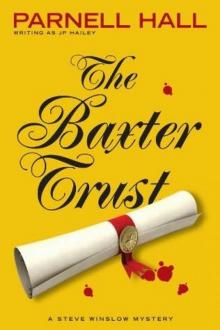 SW01 - The Baxter Trust
SW01 - The Baxter Trust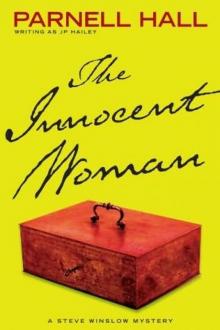 SW06 - The Innocent Woman
SW06 - The Innocent Woman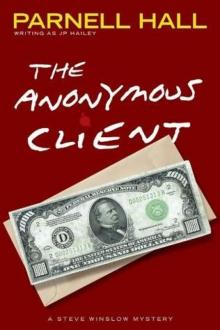 SW02 - The Anonymous Client
SW02 - The Anonymous Client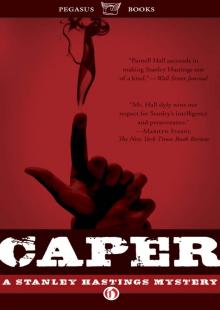 Caper
Caper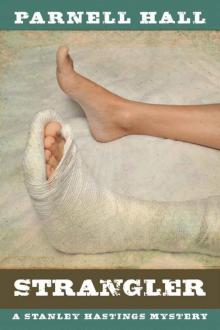 4 Strangler
4 Strangler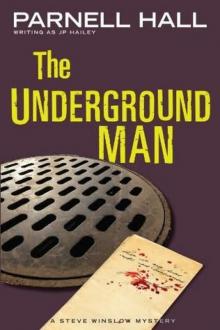 The Underground Man sw-3
The Underground Man sw-3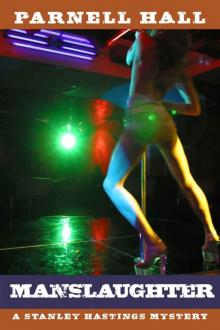 Manslaughter (Stanley Hastings Mystery, #15)
Manslaughter (Stanley Hastings Mystery, #15)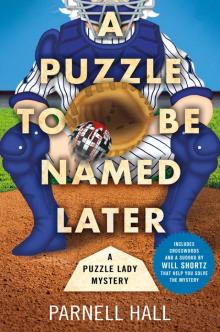 A Puzzle to Be Named Later--A Puzzle Lady Mystery
A Puzzle to Be Named Later--A Puzzle Lady Mystery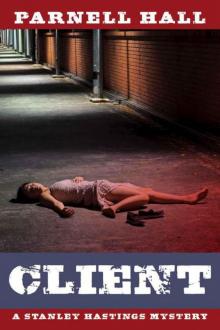 05-Client
05-Client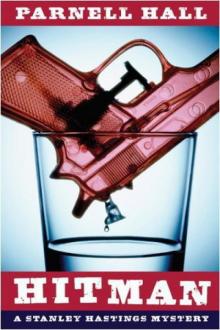 16 Hitman
16 Hitman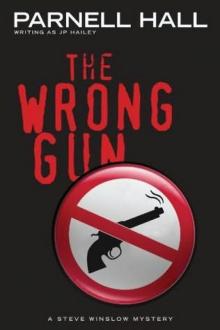 SW05 - The Wrong Gun
SW05 - The Wrong Gun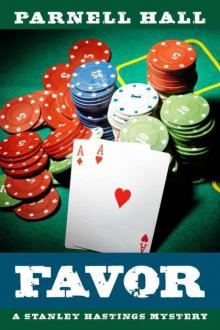 3 Favor
3 Favor Last Puzzle & Testament
Last Puzzle & Testament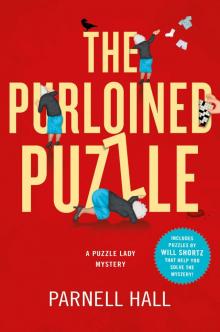 The Purloined Puzzle
The Purloined Puzzle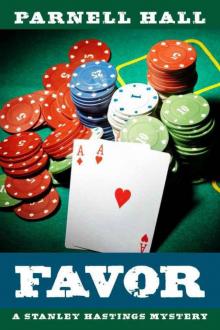 03-Favor
03-Favor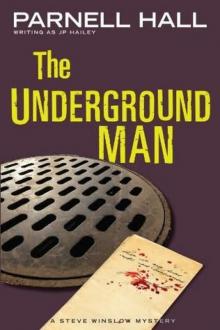 SW03 -The Underground Man
SW03 -The Underground Man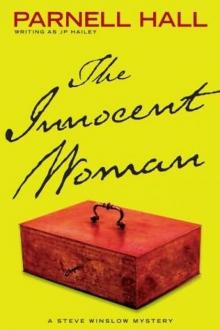 The Innocent Woman sw-6
The Innocent Woman sw-6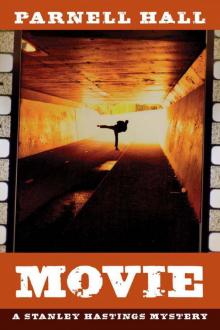 10 Movie
10 Movie 06-Juror
06-Juror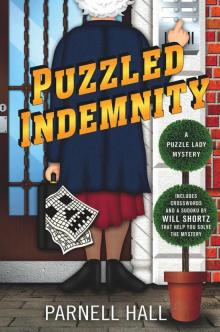 Puzzled Indemnity
Puzzled Indemnity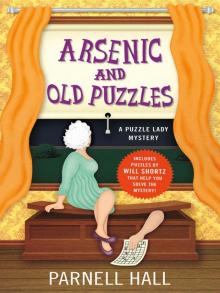 Arsenic and Old Puzzles
Arsenic and Old Puzzles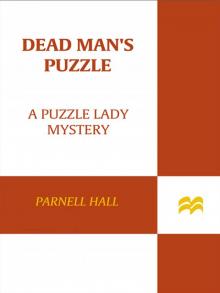 Dead Man's Puzzle
Dead Man's Puzzle Safari
Safari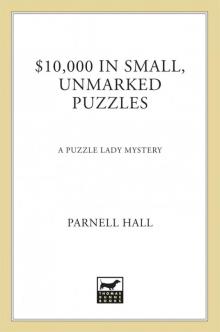 $10,000 in Small, Unmarked Puzzles
$10,000 in Small, Unmarked Puzzles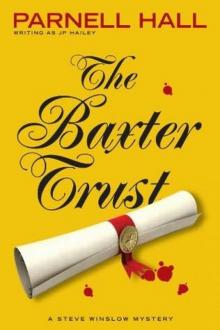 The Baxter Trust sw-1
The Baxter Trust sw-1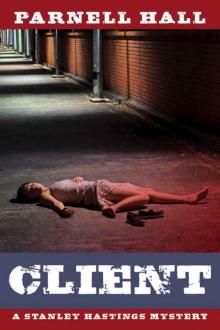 5 Client
5 Client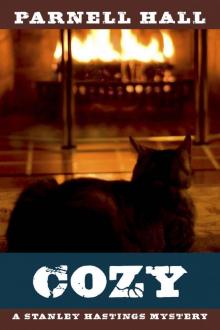 Cozy (Stanley Hastings Mystery, #14)
Cozy (Stanley Hastings Mystery, #14)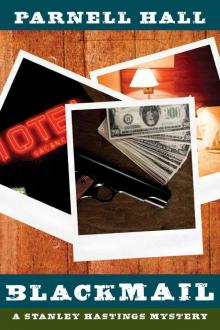 Blackmail
Blackmail A Puzzle in a Pear Tree
A Puzzle in a Pear Tree A Clue for the Puzzle Lady
A Clue for the Puzzle Lady Clicker Training (Stanley Hastings Mystery, A Short Story)
Clicker Training (Stanley Hastings Mystery, A Short Story)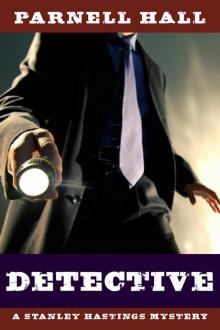 Detective (Stanley Hastings Mystery Book 1)
Detective (Stanley Hastings Mystery Book 1) 13 Suspense
13 Suspense